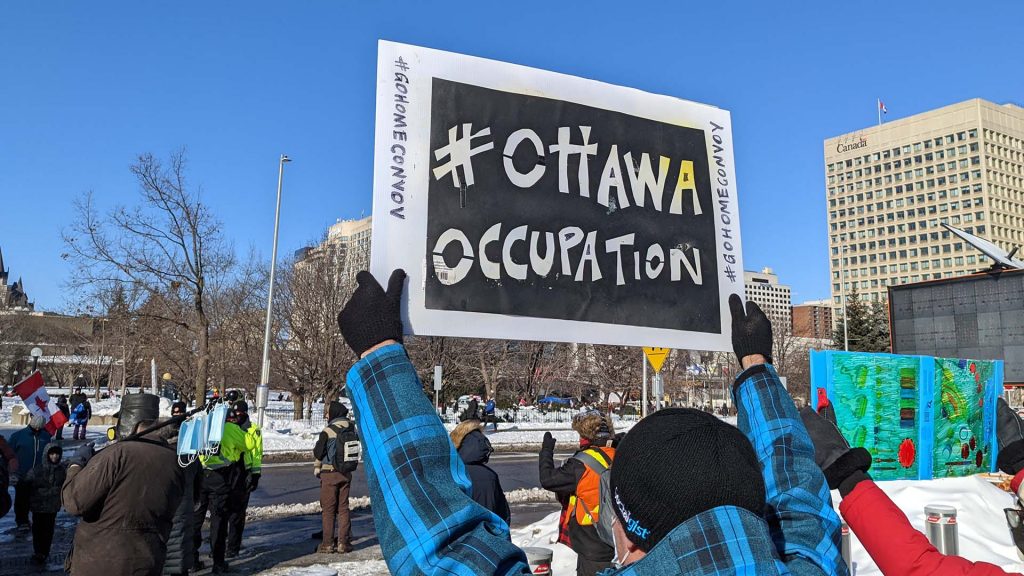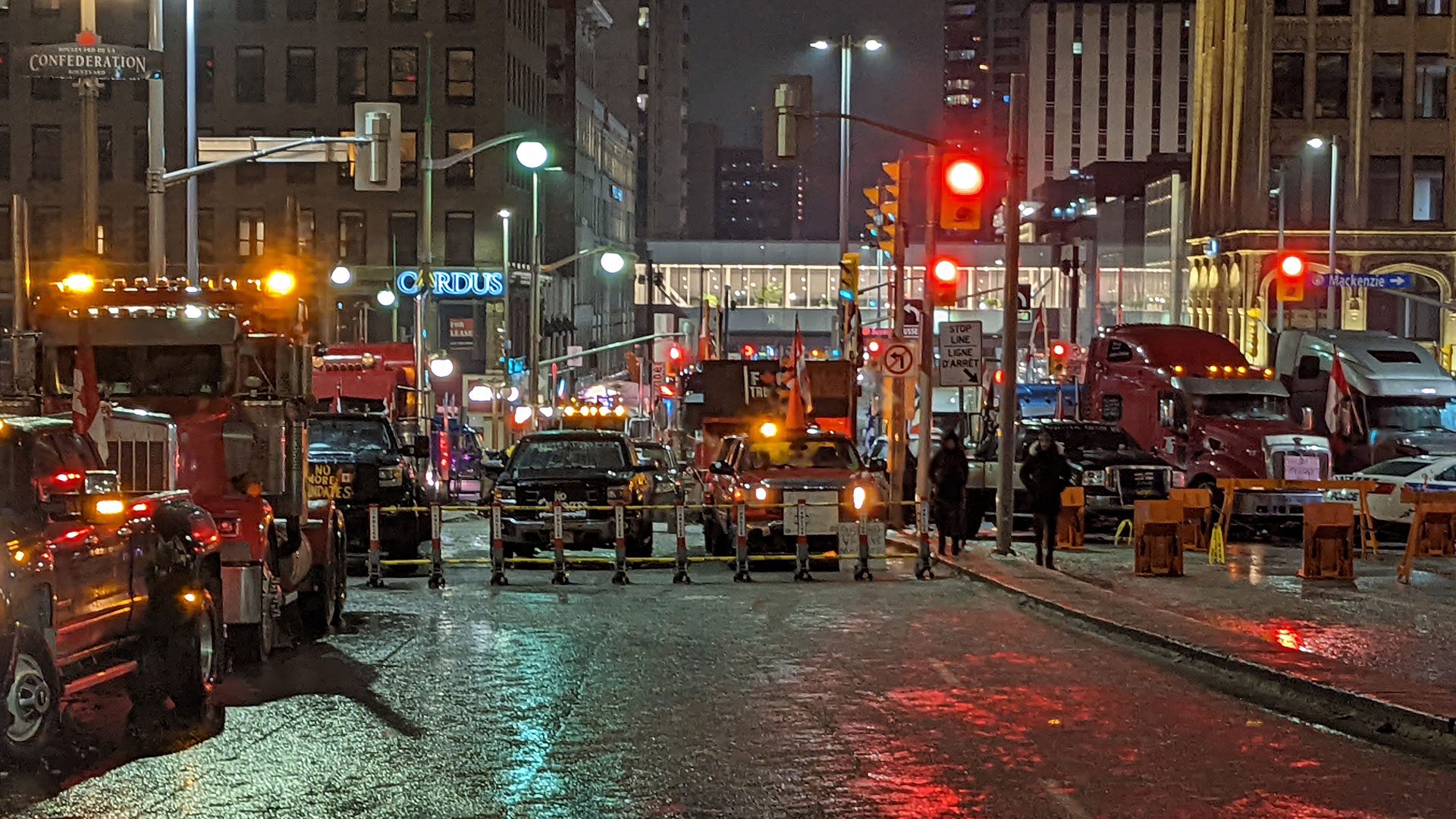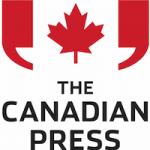
Prime Minister Justin Trudeau on Monday invoked the national Emergencies Act to bring to an end the antigovernment blockades he describes as illegal and not about peaceful protest.
The government will use that act to force towing companies to remove big rigs and other vehicles that are blocking highways and other critical infrastructure, establish zones where public assembly is not allowed, and require banks to suspend or freeze accounts suspected of supporting the blockades, including those belonging to companies whose trucks are part of the convoy.
Deputy Prime Minister Chrystia Freeland said the government is “serving notice” to trucking companies with vehicles involved in any of the blockades that they will have their corporate accounts frozen and lose their insurance.
“Consider yourselves warned,” she said. “Send your semi-trailers home. The Canadian economy needs them to be doing legitimate work, not to be illegally making us all poorer.”
Freeland said every day the Ambassador Bridge was closed $390 million worth of trade was halted. Every day the border remains closed in Coutts, Alta, she said it affects $48 million of trade, and in Emerson, Man., $73 million a day.
The government is invoking the act under the public order section, meaning they believe the blockades are a threat to national security, and as such, the act will apply across the country, including provinces where premiers said Monday they did not think it was needed.
Trudeau spoke to premiers by phone Monday morning, following an urgent cabinet meeting Sunday night. He also briefed the Liberal caucus first thing Monday.
“I want to be very clear: the scope of these measures will be time-limited, geographically targeted, as well as reasonable and proportionate to the threats they are meant to address,” Trudeau said at a news conference late in the afternoon.

He said it does not involve bringing in the military, or suspending fundamental rights under the Charter of Rights and Freedoms.
Justice Minister David Lametti said invoking the act will allow cabinet to regulate and prohibit public gatherings in specific places, such as at borders, on roads leading to and from those borders or to other critical infrastructure such as airports, and in Ottawa, where blockades of downtown streets that began Jan. 28 remain in place.
It will also allow cabinet to designate towing companies as essential services to compel them to remove big rigs and other vehicles from the blockades.
That is something many companies have refused to do for fear of reprisal from the truckers and others involved in the convoys. Trudeau said clearing trucks at the Ambassador Bridge in Windsor, Ont., on the weekend happened only because of the cooperation of American towing companies.
The orders will heavily target the financing for the convoy, which has in large part come from foreign sources using crowdfunding platforms and cryptocurrencies.
One of the temporary measures includes adding those entities to Canada’s anti-money laundering and terrorist financing laws, but Freeland said legislation to make that change permanent will eventually be introduced.
It means platforms like GoFundMe will need to register with Canada’s finance intelligence service known as Fintrac and report all large or suspicious transactions.
“It’s all about following the money,” Freeland said. “It’s about putting an end to the funding of these illegal blockades.”
Trudeau and Freeland made clear that they believe the protests threaten Canada’s economic security and its reputation internationally.
“This siege and these blockades are causing major damage to our economy and are harming our democratic institutions as well as Canada’s reputation in the world,” Freeland said. “International confidence towards Canada as a good place to invest and do business has been shaken.”
Read More:
Nine Indigenous senators condemn truckers protest
The government will also enable the RCMP to enforce municipal bylaws but Trudeau said police forces of record in every jurisdiction will remain the lead, including in Ottawa, where Chief Peter Sloly has repeatedly said he needs more officers to end the blockade.
RCMP and Ontario Provincial Police have been sent to help but it’s not clear if more will be deployed or when enforcement in Ottawa might begin.
The act can only be invoked for 30 days but Lametti said he’s hoping it won’t take that long to bring things under control.
This is the first time the Emergencies Act has been invoked since it came into force in 1988.










